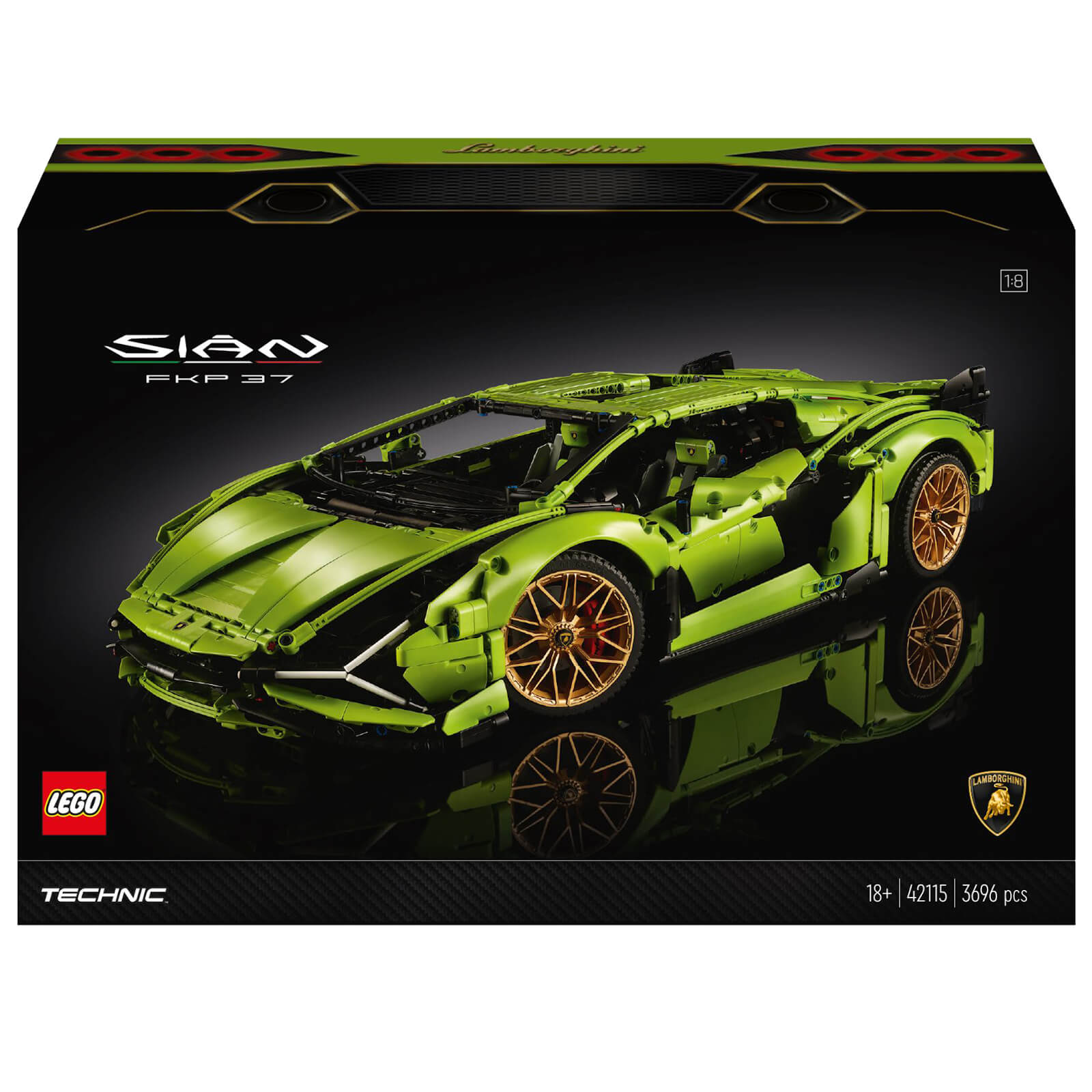Porsche 911 10295 | Creator Expert | Buy online at the Official LEGO® Shop US
Build a detailed LEGO® version of the Porsche 911
Celebrate the unmistakable style of Porsche with this fantastic building challenge as you create your own classic, collectible car with the LEGO® Porsche 911 (10295) model kit. Choose to build either the Turbo model with its turbocharged engine or the Targa with its iconic Targa bar and a removable roof that stores under the hood.
Build your favorite Porsche 911
Both the Turbo and the Targa model cars feature authentic Porsche 911 details like the iconic front and rear bumpers, angled headlights, printed logo and number plates. And the interior is just as impressive with working steering, gearshift, emergency brake, tilting seats and a dark-orange-and-nougat color scheme.
A building project for you
The LEGO Porsche 911 is part of a collection of buildable model kits for adults. From classic collectible cars to detailed buildings, these LEGO sets are the perfect way to escape everyday life with an immersive building project.
- Escape from the everyday with this thrilling building project. The LEGO® Porsche 911 (10295) model car building kit is the perfect set for adults looking for their next hands-on project.
- Explore all the Porsche 911 features including the rear-mounted, air-cooled flat-six engine, working steering, gearshift, emergency brake and tilting seats.
- Which will you choose to build? The Turbo model with its turbocharged engine or the Targa with a removable roof that can be stored under the hood.
- The Porsche 911 Turbo model car features a wide rear axle, an integrated spoiler, plus a turbocharged engine complete with intercooler.
- The Porsche 911 Targa model car includes a removable roof that fits in the hood plus the iconic Targa bar with rear glass behind the driver.
- Designed especially for classic car fans and Porsche enthusiasts, this advanced building kit comes with coffee-table-style instructions with inspirational design details.
- This Porsche 911 collectible car model measures over 4 in. (10 cm) high, 13.5 in. (35 cm) long and 6 in. (16 cm) wide.
- Looking for the best gift for a classic car fan? This Porsche 911 collectible buildable model kit is a great choice. It’s designed especially for adult LEGO® fans who appreciate stunning design.
- LEGO® building bricks are manufactured from high quality materials. They’re consistent, compatible and connect and pull apart easily every time – it’s been that way since 1958.
- With LEGO® pieces, safety and quality come first. That’s why they’re rigorously tested so you can be sure that the model is as robust as it is beautiful.
Additional information
| Deliveries and Returns | Free standard 3 to 5 business day shipping on all merchandise orders over $35! |
|---|
Buy may refer to a trade, i.e., an exchange of goods and services via bartering or a monetary purchase.
The term may not refer to:
An expert is somebody who has a broad and deep understanding and competence in terms of knowledge, skill and experience through practice and education in a particular field or area of study. Informally, an expert is someone widely recognized as a reliable source of technique or skill whose faculty for judging or deciding rightly, justly, or wisely is accorded authority and status by peers or the public in a specific well-distinguished domain. An expert, more generally, is a person with extensive knowledge or ability based on research, experience, or occupation and in a particular area of study. Experts are called in for advice on their respective subject, but they do not always agree on the particulars of a field of study. An expert can be believed, by virtue of credentials, training, education, profession, publication or experience, to have special knowledge of a subject beyond that of the average person, sufficient that others may officially (and legally) rely upon the individual's opinion on that topic. Historically, an expert was referred to as a sage. The individual was usually a profound thinker distinguished for wisdom and sound judgment.
In specific fields, the definition of expert is well established by consensus and therefore it is not always necessary for individuals to have a professional or academic qualification for them to be accepted as an expert. In this respect, a shepherd with fifty years of experience tending flocks would be widely recognized as having complete expertise in the use and training of sheep dogs and the care of sheep.
Research in this area attempts to understand the relation between expert knowledge, skills and personal characteristics and exceptional performance. Some researchers have investigated the cognitive structures and processes of experts. The fundamental aim of this research is to describe what it is that experts know and how they use their knowledge to achieve performance that most people assume requires extreme or extraordinary ability. Studies have investigated the factors that enable experts to be fast and accurate.
An official is someone who holds an office (function or mandate, regardless of whether it carries an actual working space with it) in an organization or government and participates in the exercise of authority (either their own or that of their superior or employer, public or legally private). An elected official is a person who is an official by virtue of an election. Officials may also be appointed ex officio (by virtue of another office, often in a specified capacity, such as presiding, advisory, secretary). Some official positions may be inherited. A person who currently holds an office is referred to as an incumbent. Something "official" refers to something endowed with governmental or other authoritative recognition or mandate, as in official language, official gazette, or official scorer.
Dr. Ing. h.c. F. Porsche AG, usually shortened to Porsche (German pronunciation: [ˈpɔʁʃə] ; see below), is a German automobile manufacturer specializing in luxury, high-performance sports cars, SUVs and sedans, headquartered in Stuttgart, Baden-Württemberg, Germany. The company is owned by Volkswagen AG, a controlling stake of which is owned by Porsche Automobil Holding SE. Porsche's current lineup includes the 718, 911, Panamera, Macan, Cayenne and Taycan.
The origins of the company date to the 1930s when Czech-German automotive engineer Ferdinand Porsche founded Porsche with Adolf Rosenberger, a keystone figure in the creation of German automotive manufacturer and Audi precursor Auto Union, and Austrian businessman Anton Piëch, who was, at the time, also Ferdinand Porsche's son in law. In its early days, it was contracted by the German government to create a vehicle for the masses, which later became the Volkswagen Beetle. After World War II, when Ferdinand, a member of both the Nazi Party and the SS, would be arrested for war crimes, his son Ferry Porsche, an SS volunteer, began building his own car, which would result in the Porsche 356.
In 2009, Porsche entered an agreement with Volkswagen to create an 'integrated working group' by merging the two companies' car manufacturing operations. By 2015, Porsche SE, the holding company spun off from the original Porsche firm, had a controlling interest in the Volkswagen Group, which included Audi and Lamborghini as subsidiaries.
The is a grammatical article in English, denoting persons or things that are already or about to be mentioned, under discussion, implied or otherwise presumed familiar to listeners, readers, or speakers. It is the definite article in English. The is the most frequently used word in the English language; studies and analyses of texts have found it to account for seven percent of all printed English-language words. It is derived from gendered articles in Old English which combined in Middle English and now has a single form used with nouns of any gender. The word can be used with both singular and plural nouns, and with a noun that starts with any letter. This is different from many other languages, which have different forms of the definite article for different genders or numbers.






Reviews
There are no reviews yet.